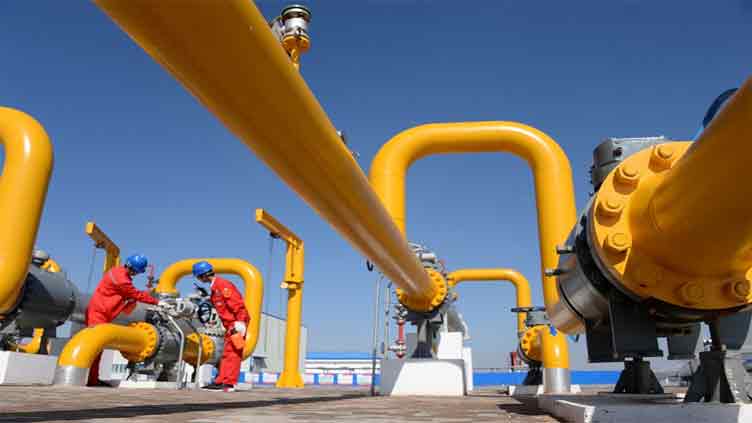Chinese cities raise residential gas prices, power demand surge for Southern Grid

Business
Rate hike result of new policy guideline that allows readjustment once or twice a year
SINGAPORE (Reuters) – Chinese cities have been raising residential natural gas prices in recent weeks after Beijing launched a new mechanism linking retail residential gas prices with distributors' fuel purchasing costs, a reform long sought by utilities.
On the other hand, China Southern Power Grid saw power demand soar to a record 226 gigawatts (GW) on Monday, according to a post on the grid company's official Weibo account on Tuesday.
Demand on the Southern Grid, which serves five southern provinces including economic powerhouse Guangdong, is expected to peak at 245 GW this summer, a year-on-year increase of 10 per cent, the grid company added.
Electricity demand typically surges in the summer months as higher temperatures push up household use of air conditioning.
More than 20 cities including Shijiazhuang and Handan in the north, Nanjing in the east, and Mianyang in the southwest have raised retail gas tariffs by 0.25 yuan ($0.0347) to 0.40 yuan per cubic meter, according to two industry officials and local government websites.
That amounts to increases of about 13pc-15pc, based on Reuters calculations, and marks a breakthrough reform to link retail gas prices with the cost of the fuel.
China has in recent years taken steps to liberalise natural gas prices by allowing some cost pass-throughs in the commercial and industrial sectors, but has kept control of residential prices in what has been widely seen as an effort to avoid a consumer backlash.
The rigid pricing structure has at times squeezed distributors' margins and caused supply disruptions, especially in the winter heating season.
The price increases follow a policy guideline issued in early June by the National Development and Reform Commission (NDRC) economic planner, according to industry players, although the NDRC did not make an announcement.
The NDRC did not respond to a request for comment.
Under the guideline, retail residential gas prices are allowed to be readjusted once or twice in a year in line with procurement costs for city-gas distributors, while non-residential prices may fluctuate quarterly or monthly, according to two industry officials with direct knowledge of the policy and research notes from Morgan Stanley and Citibank.
Purchase costs for city-gas distributors will be calculated by averaging the cost of different supply sources including piped gas, liquefied natural gas and compressed natural gas, said the sources.
China has hundreds of gas distributors. The major ones include local-government-backed firms such as Beijing Gas Group and Hong Kong listed firms like China Gas Holdings, China Resources Gas and ENN Energy Holdings.
Authorities must approve the costs, and distributors are required to publish price updates on their websites, the sources said.
If a city or province has multiple distributors, authorities will work out a weighted-average purchasing cost.
The rise in a single increase in residential prices will be capped at 0.50 yuan per cubic metre, and there is no floor for downward adjustments.
The link will be suspended when market prices surge to levels that would adversely impact residents or normal economic activity.

